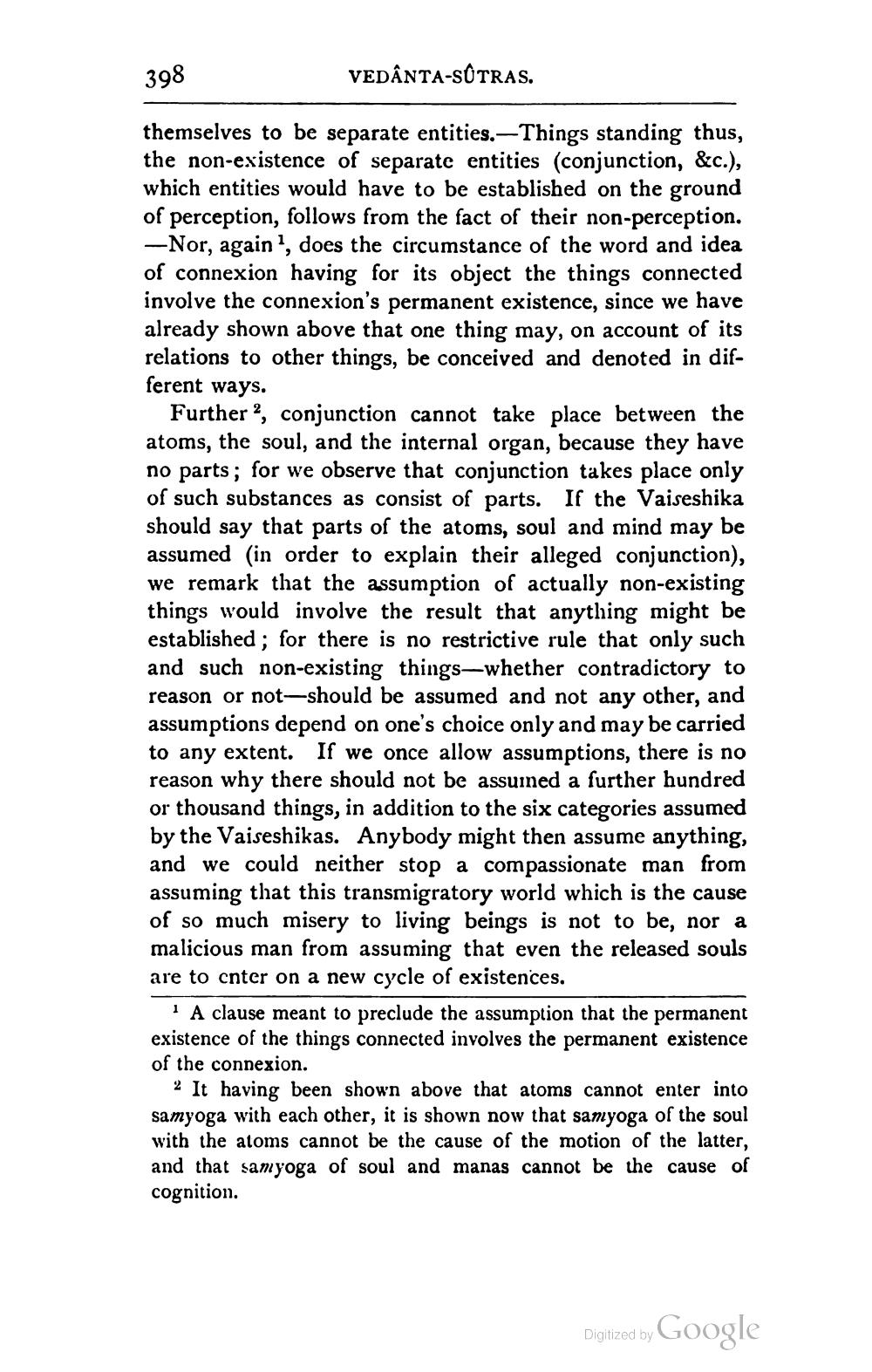________________
398
VEDÂNTA-SÛTRAS.
themselves to be separate entities.—Things standing thus, the non-existence of separate entities (conjunction, &c.), which entities would have to be established on the ground of perception, follows from the fact of their non-perception.
-Nor, again, does the circumstance of the word and idea of connexion having for its object the things connected involve the connexion's permanent existence, since we have already shown above that one thing may, on account of its relations to other things, be conceived and denoted in different ways.
Further ?, conjunction cannot take place between the atoms, the soul, and the internal organ, because they have no parts; for we observe that conjunction takes place only of such substances as consist of parts. If the Vaiseshika should say that parts of the atoms, soul and mind may be assumed (in order to explain their alleged conjunction), we remark that the assumption of actually non-existing things would involve the result that anything might be established; for there is no restrictive rule that only such and such non-existing things—whether contradictory to reason or not-should be assumed and not any other, and assumptions depend on one's choice only and may be carried to any extent. If we once allow assumptions, there is no reason why there should not be assuined a further hundred or thousand things, in addition to the six categories assumed by the Vaiseshikas. Anybody might then assume anything, and we could neither stop a compassionate man from assuming that this transmigratory world which is the cause of so much misery to living beings is not to be, nor a malicious man from assuming that even the released souls are to cnter on a new cycle of existences.
A clause meant to preclude the assumption that the permanent existence of the things connected involves the permanent existence of the connexion.
2 It having been shown above that atoms cannot enter into samyoga with each other, it is shown now that samyoga of the soul with the atoms cannot be the cause of the motion of the latter, and that samyoga of soul and manas cannot be the cause of cognition.
Digitized by
Digized by Google




